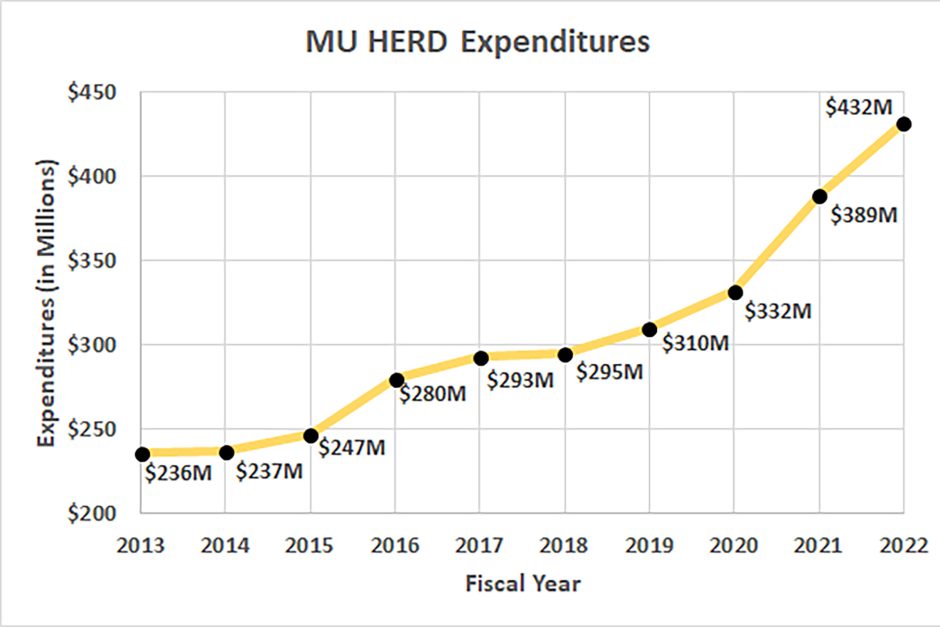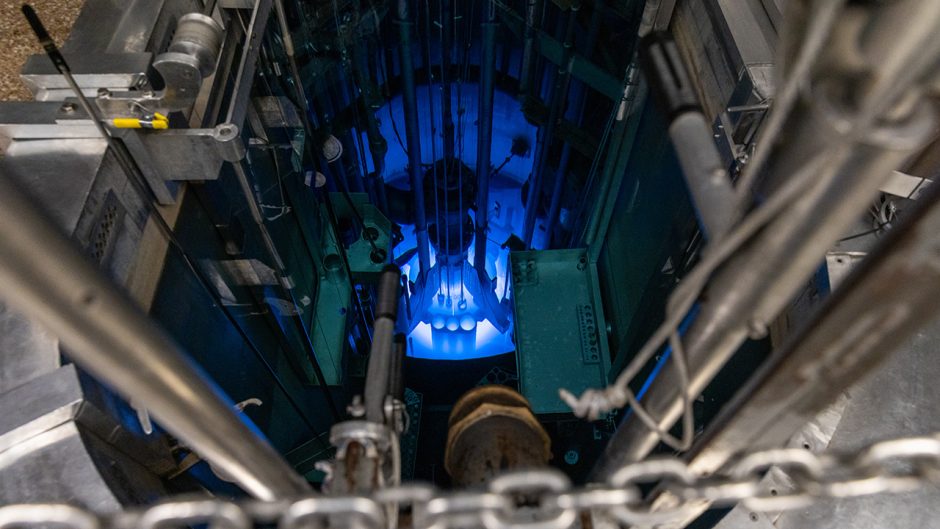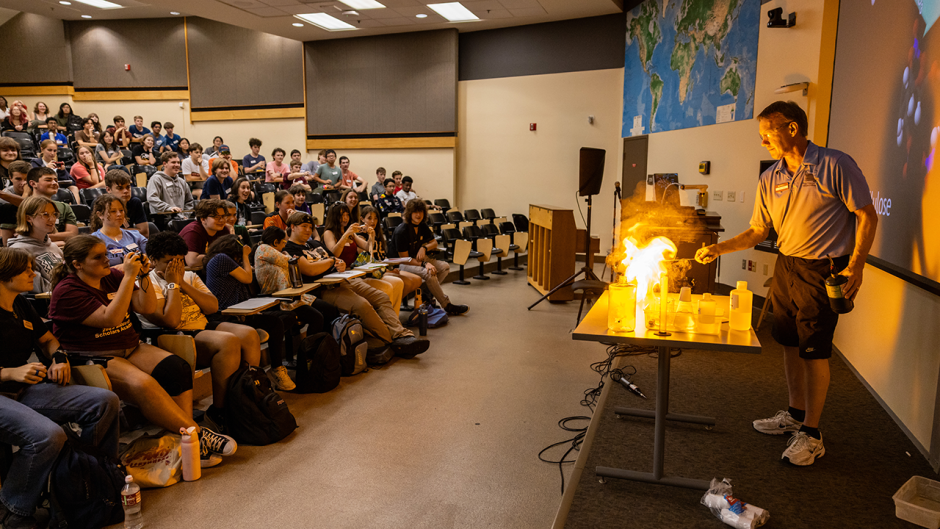
Feb. 23, 2023
Contact: Uriah Orland, 573-882-6212, uriah.orland@missouri.edu
In fiscal year 2022, the University of Missouri set a record for research expenditures of more than $432 million, marking the ninth consecutive year of growth for MU research.
“Research expenditures correlate with important outcomes of scholarship including citations, books published, highly-prestigious recognition of faculty to conferral of doctoral degrees.” said Mun Choi, University of Missouri president. “I’m very proud of the many efforts of our faculty, staff and students to achieve excellence in research”.
“An investment in research at MU is an investment in Missouri,” said Michael Williams, chair of the University of Missouri Board of Curators. “The research conducted by MU faculty attracts hundreds of millions of dollars in funding that benefit the state of Missouri and beyond. We’ll continue to invest in research excellence at MU.”
Some highlights of recent awards and research projects across the MU campus include:
- Russ Waitman, associate dean and director of the Medical Informatics in Precision Health Institute in the School of Medicine, received a $8.7 million grant from the Patient Centered Outcomes Research Institute for the Greater Plains Collaborative to conduct patient-centered outcomes research.
- James Laffey, professor emeritus in the College of Education and Human Development, is using a nearly $8 million grant from the U.S. Department of Education to expand his team’s video game, Mission HydroSci, into 60 middle school classrooms across the country. Laffey and his team are partnering with MU’s eMINTS National Center and the Missouri Research and Education Network (MOREnet) to study game-based learning for next generation science education.
- Donald Burke-Aguero, principal investigator at Bond Life Sciences Center and professor of Molecular Microbiology and Immunology in the MU School of Medicine, is researching RNA as a model for the origins of life through a $5.4 million grant from the NASA Goddard Space Flight Center.
- Andrew Thomas, a research assistant professor in the College of Agriculture, Food and Natural Resources, is using a $5.3 million grant from the National Institute of Food and Agriculture to help move the American Elderberry into mainstream production and processing.
“Thanks to investments in our research enterprise, such as MizzouForward and the NextGen Precision Health initiative, MU continues to empower our world-class researchers and scholars as they pursue challenging questions and strive for new heights through research breakthroughs and creative works,” said Thomas Spencer, vice chancellor for research. “We are changing the world by building on our existing strengths and developing new ones through interdisciplinary collaborations.”
MU’s success is due to a focused strategy that university leaders have implemented to support researchers and improve the success of obtaining elite grants. Actions include:
- Strategic Proposal Development Service -- supported by the 10-year, $1.5 billion MizzouForward initiative, MU established the Strategic Proposal Development Service team to assist faculty as they generate new research and scholarly activity grants and funding. Housed in the Division of Research, Innovation and Impact, the 10-person team is one of several research-support programs that provide resources and training for the MU community as they explore new research endeavors and create scholarly works.
- Roy Blunt NextGen Precision Health building -- The $221 million, 265,000-square-foot Roy Blunt NextGen Precision Health building offers MU researchers a state-of-the-art facility for making significant strides in scientific discovery and the development of important therapies. The building anchors the NextGen Precision Health initiative and includes the Clinical Translational Science Unit, which will provide the space, staff and equipment to conduct human clinical trials.
An economic impact report released earlier this year showed that MU’s research generated $989 million in economic impact for the state of Missouri, supporting more than 6,800 jobs and producing $55 million in state and local taxes.


![062625_CEI Aerial View_email-cropped[29] (1)](https://showme.missouri.edu/wp-content/uploads/2025/06/062625_CEI-Aerial-View_email-cropped29-1-940x529.jpg)

